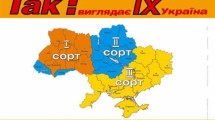Abstract
In the late E. Han, Emperor Ling founded the Hongdumen Academy so that political favors were bestowed upon the literati to reshape the policy of personnel placement, which aroused violent remonstrations lodged by the ministers. And this became a significant event in the contemporary politics and in the literary history of the late E. Han as well. Scholars through the ages have dealt with the contentious issue, but the realm does not abound with in-depth and profound research studies. Beginning with the viewing angle of the complicated relationship between Confucianism and literature, where the background to the establishment of the Academy is painted in a great variety of academicism; this article analyzes the normal practice of the Han System of the Personnel Recommendation with a view to pinpointing the underlying cause of the Incident of the Hongdumen Academy. The cause is that the Han System of the Personnel Recommendation was bucked, which was grounded upon the Confucian moral integrity as the content, and upon xiangju lixuan as the norm. This article states that the Incident was, in relation with the danggu zhihuo, interconnected with the political structure based upon such social strata as shizu and shuzu, which had gradually been created since the E. Han. By means of the investigation and debate on the Incident, this article is written to demonstrate the relationship between literature and Confucianism of the Han dynasty, the literary conditions under development, and the complex political and ideological background against which the literary conditions existed by the end of the E. Han.
Similar content being viewed by others
References
Chen Jun 陈君 (2007), “Hongdumenxue zhi xingshuai jiqi lishi qishi” 鸿都门学之兴衰及其历史启示 (The prosperity and decline of the Hongdumen Academy and its big revelations to history), in Dianji yu zhongguo wenhua 典籍与中国文化 (Chinese classics and culture), 2007(2).
Chen Yinque 陈寅恪 (1987), Chen Yinque Wei-Jin nanbeichaoshi jiangyanlu 魏晋南北朝史讲演录 (The formal record of the speech on the history of the Northern and Southern dynasties), Hefei: Huangshan shushe.
Huang Hui 黄晖 (1964), Lunheng jiaoshi 论衡校释 (The explanatory notes offered with annotation to Lunheng), Taibei: Shangwu yinshuguan.
Ma Duanlin 马端临 (1935), Wenxian tongkao 文献通考 (General study of literary records), Beijing: Shangwu yinshuguan.
Su Zhe 苏辙 (1987), Luancheng ji “Luancheng sanji” 栾城集·栾城三集 (The Luancheng omnibus [with reference to] The Luancheng trilogy), Shanghai: Shanghai guji chubanshe.
Sun Yirang 孙诒让 (1987), Zhouli zhengyi 周礼正义 (The rectified interpretation of The rites of Zhou), Beijing: Zhonghua shuju.
Tang Changru 唐长孺 (1983), Wei-Jin nanbeichao shilun shiyi 魏晋南北朝史论拾遗 (The supplementary amplifications of the historical expositions of the Wei, Jin and Northern and Southern dynasties), Beijing: Zhonghua shuju.
Wang Xianqian 王先谦 (1984), Houhanshu buzhu 后汉书补注 (Additional notes to The history of E. Han dynasty), Beijing: Zhonghua shuju.
Wang Yongping 王永平 (1995), “Hanlingdi zhizhi Hongdumenxue jiqi yuanyin kaolun” 汉灵帝之置“鸿都门学”及其原因考论 (An investigation into Emperor Ling’s establishment of the Hongdumen Academy and into the cause of the establishment), in Yangzhou daxue xuebao 扬州大学学报 (Journal of Yangzhou University), 1995(5).
Xu Tianlin 徐天麟 (1955), Xihan huiyao “Xuanju” 西汉会要·选举 (The imperial institutions recorded in different categories [with reference to] The election), Beijing: Zhonghua shuju.
Yan Kejun 严可均 (1958), Quan houhanwen 全后汉文 (The complete prosaic works of the E. Han dynasty), Beijing: Zhonghua shuju.
Yu Yingshi 余英时 (1987), “Gudai zhishi jieceng de xingqi yu fazhan” 古代知识阶层的兴起与发展 (The emergence and development of the intelligentsia in the ancient times), in Shi yu Zhongguo wenhua 士与中国文化 (The intelligentsia and Chinese culture), Shanghai: Shanghai renmin chubanshe.
Zheng Xuan 郑玄, Jia Gongyan 贾公彦 (1980), Zhouli zhushu 周礼注疏 (The commentary and subcommentary to the Zhou rites), Beijing: Zhonghua shuju.
Zhou Tianyou 周天游 (1986), Bajia Houhanshu jizhu 八家后汉书辑注 (The collected notes that eight scholars offered to the history of the E. Han dynasty), Shanghai: Shanghai guji chubanshe.
Author information
Authors and Affiliations
Corresponding author
Additional information
__________
Translated from Beijing daxue xuebao (zhexue shehui kexue ban) 北京大学学报(哲学社会科学版) (Journal of Peking University [Philosophy and Social Sciences]), 2008, (1): 91–101 by ZHANG Ruogu
Qian Zhixi 钱志熙, Professor in the Department of Chinese Language and Literature, Peking University. He obtained his Ph.D. from Peking University in 1990. His academic interest lies in classical Chinese literature, especially poetry. His published works include Han-Wei yuefu de yinyue yu shi 汉魏乐府的音乐与诗 (The yuefu poetry and music of the Han and Wei dynasties), Jiangxi shipai shizhuan 江西诗派诗传 (The collection of the annotated poems composed by Jiangxi school of poetry), Huang Tingjian shixue tixi yanjiu 黄庭坚诗学体系研究 (The research on Huang Tingjian system of poetics).
About this article
Cite this article
Qian, Z. A study into the incident of the Hongdumen Academy. Front. Lit. Stud. China 4, 483–522 (2010). https://doi.org/10.1007/s11702-010-0109-3
Published:
Issue Date:
DOI: https://doi.org/10.1007/s11702-010-0109-3



